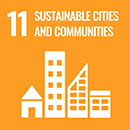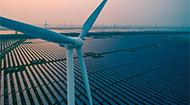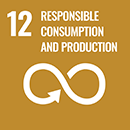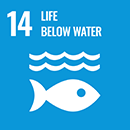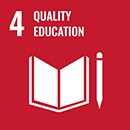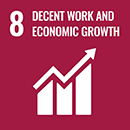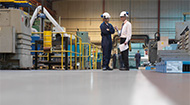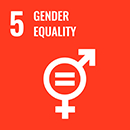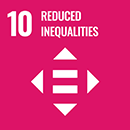Contribute to the transition to a decarbonized society by reducing CO2 emissions from automobiles and factories/plants through the use of clean energy and innovative technologies
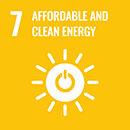
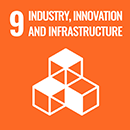
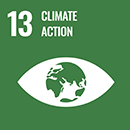
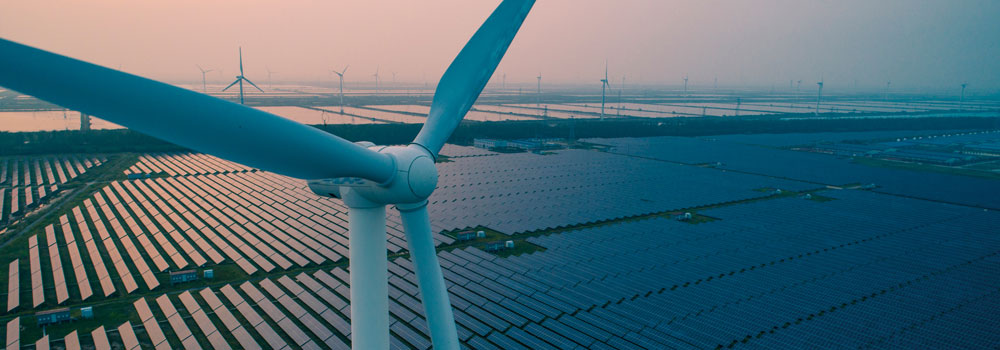
Climate change is a major issue that affects all life on Earth. To tackle this issue, Toyota Tsusho is actively increasing sales of next-generation eco-cars (HEVs*1, PHEVs*1, BEVs*1, FCEVs*1, etc.), developing infrastructure such as hydrogen stations, reducing vehicle weight by using alternative materials, and securing lithium resources that support increased production of the automotive batteries essential for eco-cars. Our initiatives include reducing automobile CO2 emissions and CO2 emissions throughout product life cycles, including in the logistics business, and eliminating CO2 emissions from factories/plants. Further, we will contribute to the realization of a decarbonized society with renewable energy, leveraging the largest wind power generation company in Japan, Eurus Energy Holdings Corporation, and one of the largest solar power generation companies in Japan, Terras Energy Corporation.
KPI
Renewable energy*2 business
ended March 31, 2025
ending March 31, 2026
ending March 31, 2028
Path to achieving the target for the fiscal year ending March 31, 2028
- Planned withdrawal from thermal power generation businesses within this fiscal year
Renewable Energy Businesses Generation Capacity
ended March 31, 2025
ending March 31, 2026
ending March 31, 2028
Path to achieving the target for the fiscal year ending March 31, 2028
- Expansion of business in emerging regions and diversification of power sources toward achieving total power generation capacity of 10 GW by the fiscal year ending March 2031
Revenue from products and services that contribute to energy saving and CO2 emissions reduction
Breakdown: low-power electronic components business (such as semiconductors), bioplastic import and sales business, etc.
ended March 31, 2025
ending March 31, 2026
ending March 31, 2028
Path to achieving the target for the fiscal year ending March 31, 2028
- Provision of energy-saving solutions and expansion of handling of products that reduce environmental impact
lithium production volume
ended March 31, 2025
ending March 31, 2026
ending March 31, 2028
Path to achieving the target for the fiscal year ending March 31, 2028
- Expansion of production to ensure a stable supply of lithium, a key to the widespread adoption of electric vehicles
Toyota Tsusho Group’s global market share of electrified vehicles*3
CY2024
CY2025
CY2028
Path to achieving the target for the fiscal year ending March 31, 2028
- Increase in sales of electric vehicles in assigned markets
Toyota Tsusho’s GHG emissions*4 : Carbon neutrality by 2050
(benchmark year)
CY2024
CY2030
CY2050
- *For details, please refer to Climate Change
- Note:Both global market share of electrified vehicles and greenhouse gas emissions: Carbon neutrality by 2050 are based on a calendar year.
- *1HEVs (hybrid electric vehicles), PHEVs (plug-in hybrid electric vehicles), BEVs (battery electric vehicles), FCEVs (fuel-cell electric vehicles)
- *2Renewable energy includes wind power (including offshore wind power), solar power, geothermal power, hydroelectric power, and wood biomass power
- *3Electrified vehicles: HEVs, PHEVs, BEVs, FCEVs,
- *4Scope 1 and Scope 2
Long-term Policy for Realizing a Decarbonized Society
In July 2021, Toyota Tsusho established long-term targets toward 2050 and targets for 2030 as intermediate targets. For further details, click here.



